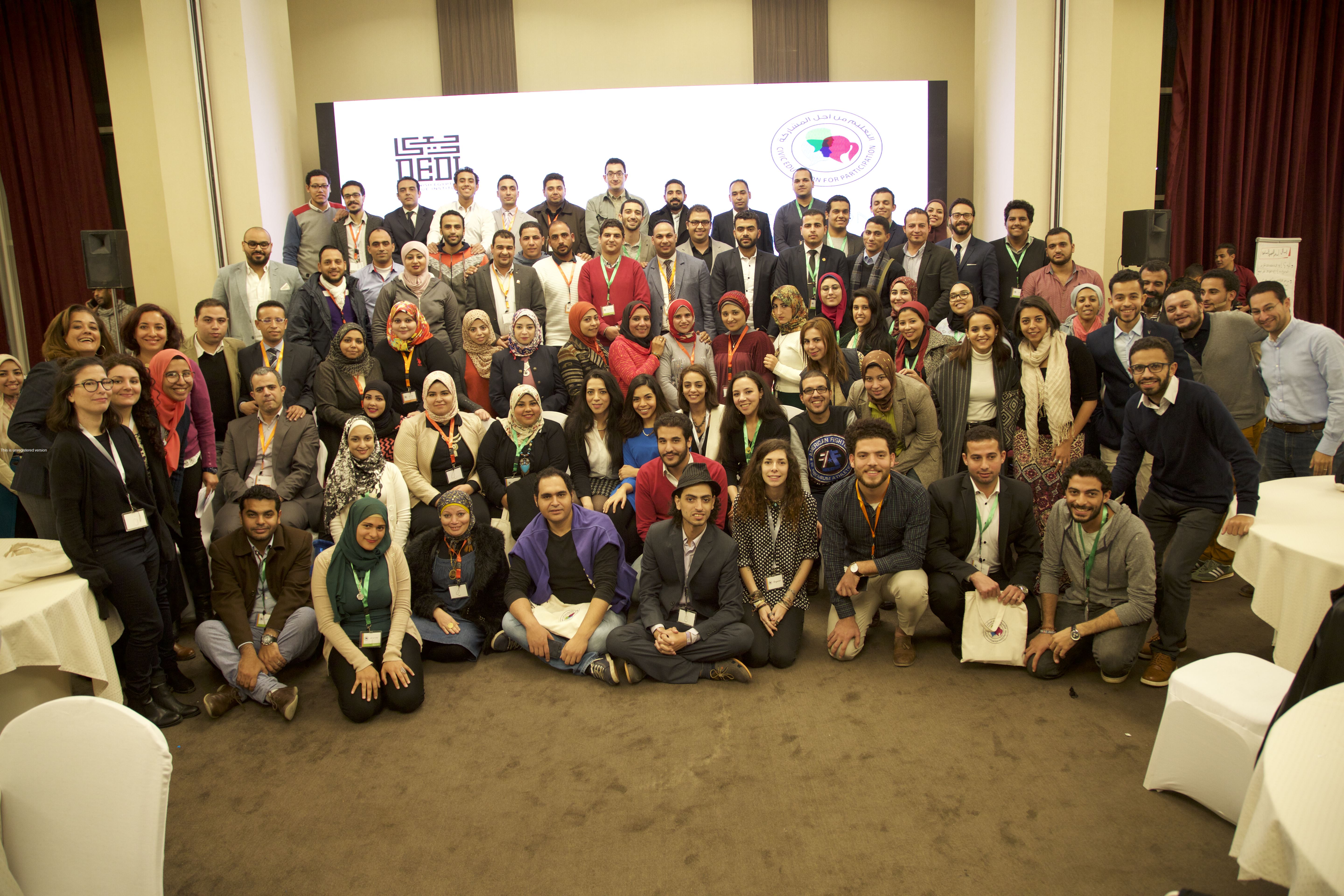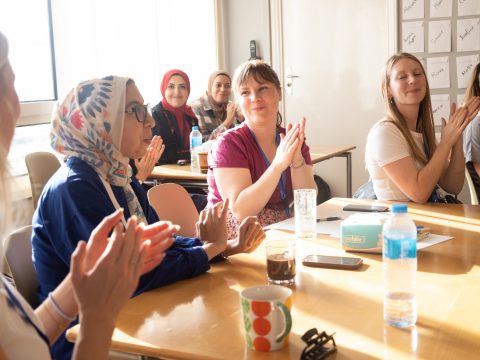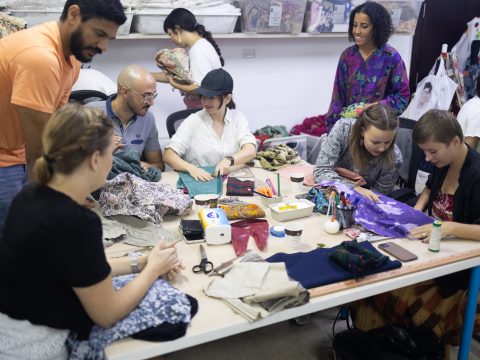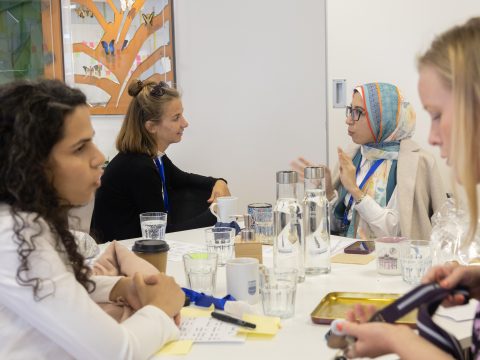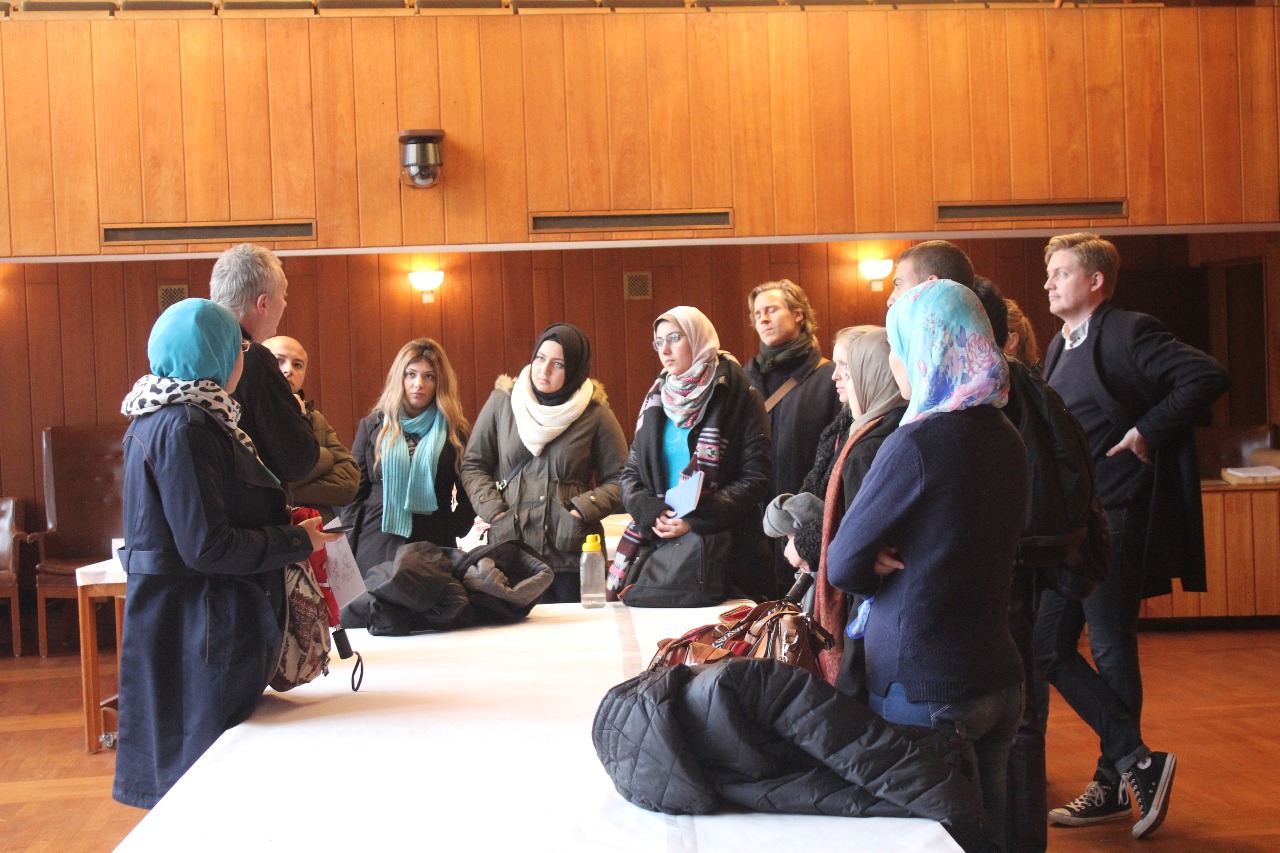
Danish Egyptian Youth Network Seminar
November 21, 2017
Dialogue on Local Administration in Egypt
January 18, 2018Cairo – December 16th, 2017.
The Danish Egyptian Dialogue Institute organizes the annual meeting of the graduates from the “Civic Education for Participation” programme.
Danish Ambassador to Cairo, Suzanne Shine, inaugurated on Saturday the annual meeting of the graduates from the “Civic Education for Participation” programme, one of the Danish Egyptian Dialogue Institute’s programmes, with broad participation of graduates from several Egyptian governorates. The forum was attended by 150 young graduates representing 5 groups of trainees within the programme, throughout 2017.
The Institute organizes the forum annually from 2012 until now.
In her address to the participants, Ms. Shine, the chairman of the institute’s board, expressed her pleasure to speak to Egyptians from all over the country and praised the efforts that were deployed to educate and empower young people.
She also stressed that lifelong learning was of particular importance to Denmark’s 5 million citizens who are part of the population of Scandinavian countries in Europe and governed by a constitution dating back to 1849.
The ambassador noted that Denmark enjoys no corruption, full transparency, low unemployment and crime rate as well as free education.
Ms. Shine explained that the “Civic Education for Participation” programme is directly linked to the model of the Danish folkeskole. The latter model is a famous type of schools in Denmark that promotes the value of lifelong learning in the sense that both young and old students go to these schools, alongside traditional work or schools, in order to learn different kinds of knowledge including sports, health, politics, literature or art.
She argued that the “Civic Education for Participation” programme is inspired by these schools which promote the idea that everyone needs to learn something new and different from their domain of expertise. She noted that night schools, as part of informal education, were the beginning of the idea of lifelong learning as the children of Denmark kept studying during the evening for the aim of contributing to building their country, and even though Denmark overcame that period, Danish people kept their will to learn and this tradition still exists today.
“All of this has inspired the Danish Institute to create the “Civic Education for Participation” programme with the help of Egyptian academics. The idea is Danish, but the content is Egyptian and so are the trainers and the trainees. Learning is a lifelong process for human beings” Ambassador Shine concluded.
On his part, the director of the Danish Egyptian Dialogue Institute, Hans Chr. Korsholm Nielsen, welcomed the participants and talked about the history of the institute in Egypt. He thanked those who contributed to the success of the programme, stressing that the idea of civic education is a common link between the Danish and Egyptian cultures that is being applied in Egypt with Egyptian spirit and content.
In the forum, a video clip was shown that included a definition of the “Civic Education for Participation “programme, an overview of the mechanisms of its work, the workshops it provided, the trainings it accomplished during 2017 and the meetings it organized for its graduates from different governorates.
In turn, the director of the Civic Education Programme at the Institute, Shahdan Arram, said that if it wasn’t for the youth, this programme would’ve never existed and they would’ve never been able to go this far in their achievements.
She added that the programme started in 2012 and has evolved significantly over the past years. It is an educational programme aimed at enhancing political participation and awareness through local academic institutions. It serves young people from different governorates, notably Cairo and Menoufia and cooperates with civil society organizations.
She also told the young participants: “We help you and you help others”
Ms. Arram clarified that it was the flexibility of the programme which made it easy to respond to the remarks of the participants regarding the duration of the programme and they eventually resorted to intensive workshops for a week, during which the students can interact with the lecturers. She explained that the idea of coexistence between participating students was more fruitful than direct training as living together in the same place made them acquire more skills.
Regarding the activities of the programme during 2017, Arram said: “We organized 5 workshops throughout 2017, addressing various topics such as gender, democracy and administrative development”. She also affirmed that the strength of the project lies in its flexibility as it depends on participation rather than memorization and unilateral teaching.
The Programme’s director also stated that today they have a programme that is developing year after year and that they are open for further development in accordance with the students’ assessment.
“We saw how the 2012 graduates kept their enthusiasm to participate and to learn again.” said Arram while stressing that learning and acquiring skills is what will lead Egypt forward.
She pointed out that the programme reached 23 governorates in 2017 as it gathered participants from all over the republic; in fact, it received application requests from thousands of students but was able to accommodate only 125 students. Ms. Arram concluded her speech by expressing her aspiration for the programme to accommodate more in the future.

